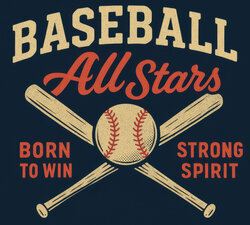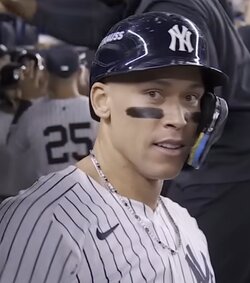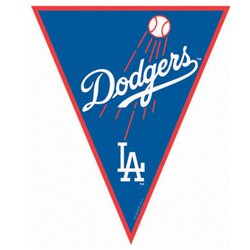2025 American League All-Star Team: The Final Ballot
In our previous post, we closed out the National League regular season with the selection of an All-Star team and our choices for the major awards. Now, it’s time to do the same for the American League.
SETTING THE GROUND RULES
Some key notes on the selections:
*At least one outfielder must be a centerfielder—this has to be a team that could realistically take the field.
*We choose two setup relievers, in addition to a closer
*We choose a full rotation of five starters.
We then use these selections as the basis for choosing a top-3 ballot for the Cy Young Award, and a top-5 listing for the MVP.
Please note that all stats are going into Saturday’s games.
THE EVERYDAY LINEUP
C: Cal Raleigh (Seattle)
Raleigh’s extraordinary season, with 60 homers, is one of the all-time great offensive years for a catcher, going up there with Johnny Bench in 1970 or Ivan Rodriguez in 1999. Raleigh lifted the Mariners to their first AL West title since the 116-win season of 2001.
1B: Vladdy Guerrero Jr. (Toronto)
We’ve seen more dominant seasons from Vladdy, and his 23 homers are fairly modest by his past standards. But his stat line of .385 on-base percentage/.472 slugging percentage still makes him the choice. Credit to Kansas City’s Vinnie Pasquantino for his 32 homers/111 RBIs, but Vinnie’s OBP was just .324. An even bigger shout-out to the Athletics’ Nick Kurtz, whose stat line sits on .383/.611. But it took too long for Kurtz to get regular playing time—he’s played in 115 games compared to 154 for Vladdy.
2B: Jazz Chisholm (NY Yanks)
The American League second base options were somewhat pedestrian. Chisholm hit 31 homers, but he did play in Yankee Stadium, and he only batted .243. That said, who else do you pick? Jose Altuve blends in some time in left field now, his stats aren’t as good as Chisholm’s and Houston is also a good park to hit in. Brandon Lowe’s stats track with Chisholm’s, but speed is a key differentiator—Jazz swiped 31 bases, while Lowe is not a threat to run.
3B: Jose Ramirez (Cleveland)
One of the truly great players of our era, Ramirez keeps carrying otherwise mediocre Cleveland lineups. This year, he hit 30 homers, stole 40 bases, and finished with a .360/.505 stat line. Jose Ramirez is the difference between Cleveland making the playoffs after selling at the deadline and being a hopeless case. He’s an easy pick against credible competition, led by Tampa’s Junior Caminero and his 45 homers/110 RBIs.
SS: Bobby Witt Jr. (Kansas City)
Shortstop in the American League is the most stacked position in the majors, I won’t say it’s on the level of Jeter/Nomar/A-Rod in the early 2000s, but this is a deep group. This pick might have been Bo Bichette had the Blue Jay shortstop not gotten hurt down the stretch. Jacob Wilson with the A’s had moments where he was on top of the pack, and Houston’s Jeremy Pena had a solid all-around year. Witt’s .352/.502 stat line doesn’t necessarily separate him from this high-quality field. But his 37 stolen bases do.
OF: Aaron Judge (NY Yanks)
He continues to do it all—a .331 batting average, 53 homers and 112 RBIs on the traditional stat lines. A .458 OBP and .692 slugging percentage if you prefer more modern metrics. Judge continues to carry a lineup that isn’t particularly deep and a brief stretch on the IL only served to underscore how much the Yankees depend on him.
OF: Julio Rodriguez (Seattle)
Juilo has made a habit of lurking in the first half and then picking up steam after the All-Star break. While I’m not a fan of the .324 OBP, he did bat .267, hit 32 homers and stole 28 bases in helping the Mariners surge down the stretch. He can also fill the requirement that this team have a true centerfielder, although I would have picked him anyway.
OF: Riley Greene (Detroit)
Another situation where I don’t like the low OBP (.315), and in this case, I don’t like the fact that Green’s team has been spiraling in September. But Comerica Park is one of the toughest in the American League to post numbers in, and Greene has hit 36 homers and driven in 111 runs.
Those Left Behind
These two outfield spots were the toughest calls in either league. Byron Buxton in Minnesota has a case, with his 34 homers, .547 slugging percentage. He also plays centerfield. But with a .326 OBP, he couldn’t exploit my main misgivings with J-Rod and Greene. Tyler Soderstrom for the A’s is having a nice all-around year, at .350/479 in on-base percentage and slugging percentage. But in the end, their teams were not contenders. Rodriguez and Greene were playing in legitimate high-pressure games throughout the season.
DH: George Springer (Toronto)
Springer showed he could still get it done, with a .395/.554 stat line, 31 homers, 104 runs scored, and 17 stolen bases. His 491 at-bats lag Tampa’s Yandy Diaz by about 90, which is significant. Not significant enough to wipe out a considerable edge in the numbers. A hat-tip to Brent Rooker who had another good year putting up power numbers in obscurity for the A’s.
STARTING PITCHERS
Garrett Crochet (Boston)
Acquired by the Red Sox to be an ace, Crochet did exactly that. He won 18 games, finished with a 2.59 ERA, and cleared the 200-inning threshold. An easy choice for this All-Star rotation.
Tarik Skubal (Detroit)
Another no-brainer choice. Skubal is 13-6 with a 2.21 ERA. He finished with 195 IP and would have cleared 200 had he been needed to make his scheduled start on Sunday. Even allowing that Comerica favors pitchers, as noted above, Skubal is still an obvious All-Star.
Hunter Brown (Houston)
Working in a park that’s not nearly as friendly to hitters, Brown posted a 2.43 ERA and has won 12 games, while working 185 innings.
Max Fried (NY Yanks)
In June, it looked like Fried was going to run away with the Cy Young Award. He’s fallen from that race, but he’s still 19-5 with a 2.86 ERA and 195 innings pitched in a park notoriously difficult to put up good pitching numbers in. Any list of the top five starters in the American League clearly has to have him on it.
Carlos Rodon (NY Yanks)
With a 3.09 ERA, Rodon leapfrogs several pitchers ahead of him that core stat. The reason starts with workload—with 195 IP, Rodon edge on a handful of other pitchers (Bryan Woo, Jacob deGrom, and Gavin Williams) for chewing up innings. And, to continue the park effects theme, Rodon has to do it in Yankee Stadium.
BULLPEN
Setup: Bryan Abreu (Houston)
Abreu is quietly one of the steadiest setup men in the American League, over multiple seasons. This year he finished with a 2.28 ERA, and 71 IP is solid for this role.
Setup: Garrett Whitlock (Boston)
Finally healthy, Whitlock became a lights-out setup man for Aroldis Chapman as the season wore on and sits on a 2.25 ERA in 72 innings. And in another park that, between the Green Monster and the Pesky Pole, can be unforgiving.
Closer: Andres Munoz (Seattle)
Carlos Estevez in Kansas City has the most saves, at 41. Boston’s Chapman has the most dominant ERA, at 1.17. Munoz splits the difference. With 38 saves, he’s six ahead of Chapman. And with a buck-47 ERA, the Mariner closer is over a run ahead of Estevez. Munoz gets the call.
AWARDS
Cy Young Award: Garrett Crochet (Boston)
This award is coming down to Skubal and Crochet. Based on the betting odds, I fully expect that Skubal will actually win it when the announcement comes in mid-November. But I dissent. It’s far more difficult to pitch in Fenway than it is in Comerica, something that can easily account for the ERA gap.
I’m also enough of a traditionalist that I still think wins are an important stat. I understand the shortcomings and it’s not the first place I go. But being able to pitch with a lead and to specific game situations still matters. Crochet, with his 18 wins, deserves the nod. That same rationale leads me to opt for Fried over Brown for the final spot on the ballot.
1)Crochet
2)Skubal
3)Fried
Most Valuable Player: Aaron Judge (NY Yanks)
The race between Judge and Raleigh is the high-drama one of all the awards in either leagues, and Raleigh is a narrow favorite in the betting markets. I understand why—Raleigh plays a more important position and has a more difficult park to hit in. But there’s one huge stat discrepancy I can’t get beyond—Judge hitting .331 compared to Raleigh’s .243.
If Raleigh would have hit two more home runs, gotten to 62 and tied the AL single-season record set by Judge in 2022 (a number many of us consider the true all-time record, untainted as it was by PED use), I probably would have changed my vote. But the overall production has to lean a little bit to Judge.
My ballot would be:
1)Judge
2)Raleigh
3)Ramirez
4)Crochet
5)Skubal
WHY THIS TEAM MATTERS
When you spend as much time going through past seasons as we do here at OUAT Sports, you really appreciate All-Star teams—it’s quick snapshot look at who mattered the most over the course of the long six months. MLB”s failure to have this season-ending selection is a big omission in the historical record book. We’ll do our small part in rectifying that.
Now, it’s time to pivot to the playoffs. The Wild-Card Round begins early Tuesday afternoon. A complete postseason overview, replete with each team’s strengths and weaknesses, will be posted by that morning before the games begin.





